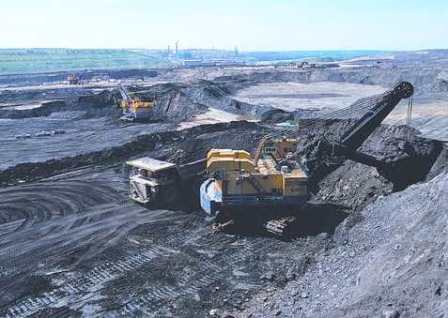Oil Headed for $225 A Barrel?

As billions pour into projects aimed at making the Canadian prairies the world's largest exporter of crude oil, supposedly insulating Canada from an American economic downturn, two major Canadian news sources foreshadow a gloomy future for The Great White North. Canwest News (via Canada.com) quotes a study conducted by CIBC World Markets (the investment arm of the Canadian Imperial Bank of Commerce) that suggests oil prices could surge to $225 per barrel by 2012. That would push Canadian gasoline prices to about $2.25/L (or about $8 gallon at current exchange rates). According to Jeff Rubin, World Market's chief economist, oil supplies are static; demand isn't. "[For] every extra driver that gets a car and goes on the road in those (developing) countries in the next five to six years, somebody's having to get off the road in the OECD countries." Meanwhile, Montréal's La Presse ran the results of a study conducted by energy analyst and longtime doom-and-gloomer Patrick Déry. He predicted Peak Oil's (long-awaited?) arrival in 2018; Québec and other net importers of energy will run out of oil supply by 2030.



































Comments
Join the conversation
Folks, there are two things we need to understand: Malthusian worries about population growth are obsolete. No global overpopulation looms ahead. Before most of us are dead the most critical issue in almost all developed countries will be population decline. Not from war, disease or famine, but because not enough babies are born to maintain population levels or to prevent the average age from climbing. And we need to understand the economics of the oil business. Most importantly, Exxon, Chevron, etc., rarely own that oil in the ground---the landowners do. And when an oil company lifts that oil, the landowners expect to get their share of the full market price for that oil. As do all others with an economic interest in what's produced; not least government.
Anyone who thinks Malthusian worries are obsolete should read this article: http://www.washingtonpost.com/wp-dyn/content/article/2008/04/26/AR2008042602041.html
Anybody keeping up with the rice shortage news? Apparently the richer countries are overstocking and buying more stocks no matter what the cost. The 3rd world countries can no longer afford it and people are eating (literally) mud pies in Haiti. Now, somebody want to explain this away for me? Will this mean that new farmers will be created after a few years of high food prices in these countries? Does this mean that food prices will drop again? Will this polarize these poor peoples so that they are more eager to follow nutcases like Bin Laden? I figure the high oil prices will make certain people very wealthy until the price of everything else catches up. Note that I didn't say that oil would go back down - just that everything else catches up. Will require a decade maybe of high prices. The difference between now and the 80s will be low interest rates.
Some observations, each of which can justify a monograph: The rice situation vividly illustrates how groups of otherwise smart people in the aggregate sometimes harm their own interests. Overall, global hunger and food pricing have been problems of distribution, not supply, for many decades. The world produces more than enough food for 6+ billion people, but mal-distribution results in gross inequities. This is largely reflective of economic disparities, but not exclusively. There are localities where rice is short, ability to pay is scant, and consequences are both dire and real. But this is not the case for the US. In fact, the US grows far more rice than its population consumes. We export about half the rice we grow, and we could put more land under rice cultivation. Nevertheless, last week Costco and Sam's Club moved to limit a run on bags of rice larger than 20 lbs. because restaurant owners and bulk food buyers, along with some individuals, were stripping stores of supplies on *anticipation* (read fear) of higher prices or shortage. Yet America has a glut of rice relative to intrinsic domestic demand. Meanwhile, in parts of India and Africa, there are local shortages or other areas where rice is priced out of reach of poor families, even it it's at hand. Drought, weather, fuel costs and improving living standards in previously-poor areas all contribute. Relatively small inputs can have amplified psychological effects. So while the volume of corn production for fuel ethanol doesn't explain by itself a number and scale of grain scarcities, the marginal impact of land, time, resources and cultivation diverted from food to fuel does add price pressure. Bio-fuels may have a legitimate place in our evolving fuel mix as we mitigate dependency on oil, but moving land out of food cultivation and into fuels -- especially when doing so is water and fertilizer intensive -- is foolish and unnecessary. Farmers and (let's separate them) agribusiness have incentives to maximize near-term return for their activities, and this sometimes leads them away from long-term stewardship of the land they use. Government subsidies encouraging corn-for-ethanol production result in land transfered from wheat or other crops to corn, plus there's a drought in the wheat-growing regions of Australia. Now there's a flour shortage so wheat prices are rising and some farmers are expanding wheat acreage at the expense of something else. And then there will be another "something else." And yet in the US and EU, there remains arable land kept fallow by government policy. A little holistic thinking about the problems would offer a policy median between the harm of a state economy in agriculture, and the vicissitudes of unchecked markets of shortsighted individuals. If only. Again, just as I have suggested in prior texts about the power individuals have for preserving the domestic auto industry or responding to climate change or managing their energy economics, once again I ask: what will you do to shape the world you want? Wealth is the world's greatest contraceptive. But it also tends to make people want to eat more meat. That's inefficient from an environmental and food distribution standpoint. It takes more than 10 lbs. of grain to yield 1 lb. of beef, and considerable water. More of everything to process it safely and move it around. As an American, living in a country where food prices are, by global standards, incidental for middle-class folks, are you willing to eat less meat? Especially less corn-fed meat? Are you willing to just eat less? Are you willing to stop buying bottled water and instead go back to the tap? It's probably cleaner water anyway. Are you willing to leave that extra couple of 20 lb. bags of rice on the pallet at Costco and take a little risk the price might be a bit higher in a month? What are you willing to do, if you believe these problems are real? Malthus has less than 50 years left to terrorize our thoughts. After that, global population will have peaked and be in extended, gradual decline, if we are sensible and keep the wealth-generating machinery going. We will be able to grow enough food for the 9 billion global population at peak. The problem will be distribution as it always has been for the last hundred years or so. The amount of food thrown away every day by just the restaurants in any major city in the US or EU would sharply improve the caloric requirements of some large populations in Africa, India and rural China. Add the heaps discarded by individuals and families. And the foodstuffs paid for, taken off the market, and stored by government payments, and you can see lots of ways to narrow the gaps. As I said before, I'll vote for any presidential candidate who will pledge to work for ending government funding of foodstuffs-for-ethanol. If we're going to have biofuels, let it be from by-products, waste, or non-crop lands. Better yet, let's extract untapped oil, boost clean coal, subsidize mass adoption of residential and commercial rooftop solar, go big on solar farming in our empty southwestern interior, build a continental water husbandry network, get serious about sensible uses for water, and think twice before hoarding or filling your plate to the rim. Mitigating food shortages and moderating pricing starts with each of us. In the 1950s, the world was going to starve, but the Green Revolution of the 1960s and 1970s pushed away disaster. In the 1970s, we heard it before: energy prices will arrest or take back the gains of the Green Revolution and climate change will complete our doom. In 1975, new oil was forecast to be elusive. The world was headed from 3 billion to a nightmarish 6 billion people. We'd never be as well off again. Doom ad infinitum. But oil fell. Food moderated. Commodities slipped. Economic productivity rose. We've been here before, fighting a war without taxing for it, credit crunch, expensive money, weak dollar, yadda-yadda; yet ingenuity is more distributed than ever and serious science and innovation is proliferating. The export markets enlivened by a weak dollar dwarf the domestic contribution of the housing economy, by 4 to 5X. We *could* totally SNAFU the economic management task at hand, but it's not inevitable. Let's stop talking ourselves into a panic. Phil